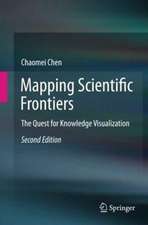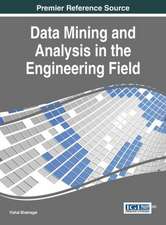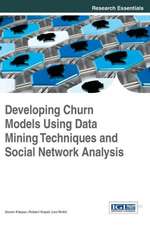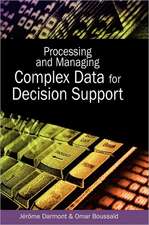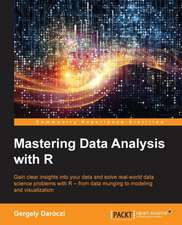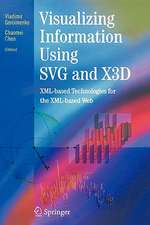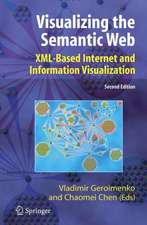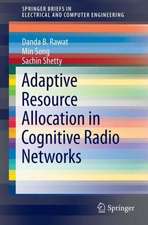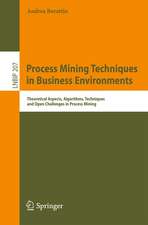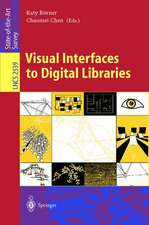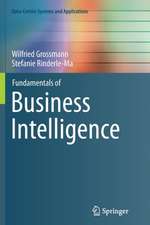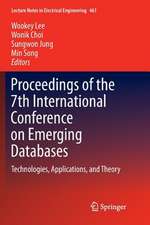Representing Scientific Knowledge: The Role of Uncertainty
Autor Chaomei Chen, Min Songen Limba Engleză Paperback – 4 iun 2019
Scientific knowledge is complex. A subject matter is typically built on its own set of concepts, theories, methodologies and findings, discovered by generations of researchersand practitioners. Scientific knowledge, as known to the scientific community as a whole, experiences constant changes. Some changes are long-lasting, whereas others may be short lived. How can we keep abreast of the state of the art as science advances? How can we effectively and precisely convey the status of the current science to the general public as well as scientists across different disciplines?
The study of scientific knowledge in general has been overwhelmingly focused on scientific knowledge per se. In contrast, the status of scientific knowledge at various levels of granularity has been largely overlooked. This book aims to highlight the role of uncertainties, in developing a better understanding of the status of scientific knowledge at a particular time, and how its status evolves over the course of the development of research. Furthermore, we demonstrate how the knowledge of the types of uncertainties associated with scientific claims serves as an integral and critical part of our domain expertise.
| Toate formatele și edițiile | Preț | Express |
|---|---|---|
| Paperback (1) | 451.69 lei 6-8 săpt. | |
| Springer International Publishing – 4 iun 2019 | 451.69 lei 6-8 săpt. | |
| Hardback (1) | 458.12 lei 6-8 săpt. | |
| Springer International Publishing – 17 ian 2018 | 458.12 lei 6-8 săpt. |
Preț: 451.69 lei
Preț vechi: 564.61 lei
-20% Nou
Puncte Express: 678
Preț estimativ în valută:
86.47€ • 88.98$ • 72.89£
86.47€ • 88.98$ • 72.89£
Carte tipărită la comandă
Livrare economică 01-15 martie
Preluare comenzi: 021 569.72.76
Specificații
ISBN-13: 9783319873367
ISBN-10: 3319873369
Pagini: 375
Ilustrații: XXXII, 375 p. 200 illus., 165 illus. in color.
Dimensiuni: 155 x 235 mm
Greutate: 0.57 kg
Ediția:Softcover reprint of the original 1st ed. 2017
Editura: Springer International Publishing
Colecția Springer
Locul publicării:Cham, Switzerland
ISBN-10: 3319873369
Pagini: 375
Ilustrații: XXXII, 375 p. 200 illus., 165 illus. in color.
Dimensiuni: 155 x 235 mm
Greutate: 0.57 kg
Ediția:Softcover reprint of the original 1st ed. 2017
Editura: Springer International Publishing
Colecția Springer
Locul publicării:Cham, Switzerland
Cuprins
Beyond the State of the Art.- Macroscopic Views of Science.- Mesoscopic and Microscopic Views of Science.- Text Mining.- Literature-Based Discovery.- Measuring Scholarly Impact.- Representing Scientific Knowledge.- Visual Exploration of Scientific Literature.- Visual Observatory of Scientific Knowledge.
Notă biografică
Chaomei Chen is a Professor in the College of Computing and Informatics at Drexel University and a Professor in the Department of Library and Information Science at Yonsei University. He is the Editor in Chief of Information Visualization and Chief Specialty Editor of Frontiers in Research Metrics and Analytics. His research interests include mapping scientific frontiers, information visualization, visual analytics, and scientometrics. He has designed and developed the widely used CiteSpace visual analytic tool for analyzing patterns and trends in scientific literature. He is the author of several books such as Mapping Scientific Frontiers (Springer), Turning Points (Springer), and The Fitness of Information (Wiley).
Min Song is an Underwood Distinguished Professor at Yonsei University. He has extensive experience in research and teaching in text mining and big data analytics at both undergraduate and graduate levels. Min has a particular interest in literature-based knowledge discovery in biomedical domains and its extensions to a broader context such as the social media. He is also interested in developing open source text mining software in Java, notably creating the PKDE4J system to support entity and relation extraction for public knowledge discovery.
Min Song is an Underwood Distinguished Professor at Yonsei University. He has extensive experience in research and teaching in text mining and big data analytics at both undergraduate and graduate levels. Min has a particular interest in literature-based knowledge discovery in biomedical domains and its extensions to a broader context such as the social media. He is also interested in developing open source text mining software in Java, notably creating the PKDE4J system to support entity and relation extraction for public knowledge discovery.
Textul de pe ultima copertă
This book is written for anyone who is interested in how a field of research evolves and the fundamental role of understanding uncertainties involved in various stages of the development of a scientific domain. In a nutshell, the uncertainty of scientific knowledge is how much we really know what we think we know. We introduce a series of computational and visual analytic techniques from research areas such as science mapping, text mining, literature-based discovery, and semantic network analysis so that readers can apply these tools to the study of a subject matter of their choice. In addition, we set the diverse set of methods in an integrative context that draws upon insights from philosophical, sociological, and evolutionary theories of what drives the advances of science so that the readers of the book can guide their own research with their enriched theoretical foundations.
Scientific knowledge is complex. A subject matter is typically built on its own set of concepts,theories, methodologies, and findings discovered by generations of researchers and practitioners. Scientific knowledge changes constantly. Some changes are profound and long-lasting, whereas others may be transient. How can we keep abreast of the state of the art as science advances? How can we effectively and precisely capture the epistemic status of the current science?
The study of scientific knowledge in general has been overwhelmingly focusing on scientific knowledge per se. In contrast, the epistemic status of scientific knowledge at various levels of granularity has been largely overlooked, especially when the focus is on the development of a scientific domain. This book aims to highlight the role of uncertainties in developing a better understanding of the status of scientific knowledge at a particular time and how its status evolves over the course of the development of research. Furthermore, we demonstrate how the knowledge of the types of uncertainties associated with scientific claims serves as an integral and critical part of our domain expertise.
Scientific knowledge is complex. A subject matter is typically built on its own set of concepts,theories, methodologies, and findings discovered by generations of researchers and practitioners. Scientific knowledge changes constantly. Some changes are profound and long-lasting, whereas others may be transient. How can we keep abreast of the state of the art as science advances? How can we effectively and precisely capture the epistemic status of the current science?
The study of scientific knowledge in general has been overwhelmingly focusing on scientific knowledge per se. In contrast, the epistemic status of scientific knowledge at various levels of granularity has been largely overlooked, especially when the focus is on the development of a scientific domain. This book aims to highlight the role of uncertainties in developing a better understanding of the status of scientific knowledge at a particular time and how its status evolves over the course of the development of research. Furthermore, we demonstrate how the knowledge of the types of uncertainties associated with scientific claims serves as an integral and critical part of our domain expertise.
Caracteristici
Explains the growth of scientific knowledge through diverse theoretical views and data-driven examples Demonstrates the critical and fundamental role of a variety of uncertainties of scientific writing and scientific knowledge Illustrates a solid set of visual analytic and text mining procedures and tools for active researchers Presents a framework of an ambitious research agenda, that may considerably increase the clarity of the status of the state of the art of scientific knowledge Includes supplementary material: sn.pub/extras





